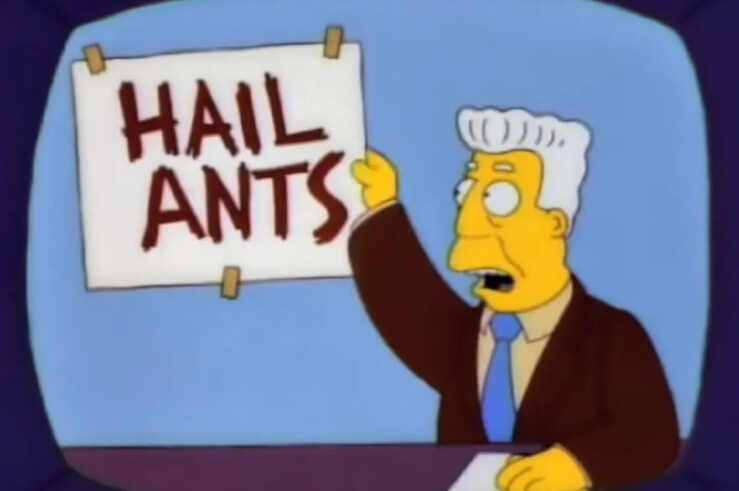Showing results for: “FTC policy statement unfair methods of competition”
Latin America Should Follow Its Own Path on Digital-Markets Competition
In order to promote competition in digital markets,[1] Latin American countries should not copy and paste “solutions” from other jurisdictions, but rather design their own set of policies. In short, Latin American countries—like my own, Peru—should not “put the cart before the horse” and regulate markets that are not yet mature. Digital or “tech” markets ... Latin America Should Follow Its Own Path on Digital-Markets Competition
Net Neutrality and Broken Records
I don’t mean to sound like a broken record, but why is the Federal Communications Commission (FCC) playing a broken record? I’ve been writing a fair bit about Federal Trade Commission (FTC) rulemaking initiatives. On the theory that you deserve a nominal break from all of that, this post is mostly about the FCC. On ... Net Neutrality and Broken Records
The Biden Executive Order on AI: A Recipe for Anticompetitive Overregulation
The Biden administration’s Oct. 30 “Executive Order on the Safe, Secure, and Trustworthy Development and Use of Artificial Intelligence” proposes to “govern… the development and use of AI safely and responsibly” by “advancing a coordinated, Federal Government-wide approach to doing so.” (Emphasis added.) This “all-of-government approach,” which echoes the all-of-government approach of the 2021 “Executive ... The Biden Executive Order on AI: A Recipe for Anticompetitive Overregulation
When Progress Is Regressive: The Ordo-Brandeisian Devolution
It is no coincidence that ordoliberalism—the European (originally German) alternative to classical liberalism that emphasized the importance of the “social market” economy—and the New Brandeis or “neo-Brandeisian” movement, which harkens back to the Progressive Era thought of the late U.S. Supreme Court Justice Louis Brandeis, both are enjoying comebacks simultaneously. The effects of these ideological ... When Progress Is Regressive: The Ordo-Brandeisian Devolution
Biden’s AI Executive Order Sees Dangers Around Every Virtual Corner
Here in New Jersey, where I live, the day before Halloween is commonly celebrated as “Mischief Night,” an evening of adolescent revelry and light vandalism that typically includes hurling copious quantities of eggs and toilet paper. It is perhaps fitting, therefore, that President Joe Biden chose Oct. 30 to sign a sweeping executive order (EO) ... Biden’s AI Executive Order Sees Dangers Around Every Virtual Corner
Market Power as a Limiting Principle in Merger Enforcement
One of the most important changes in the Federal Trade Commission (FTC) and U.S. Justice Department’s (DOJ) draft merger guidelines is the abandonment of market power as the central element of merger enforcement. The “unifying theme” of the 2010 horizontal merger guidelines was that “mergers should not be permitted to create, enhance, or entrench market ... Market Power as a Limiting Principle in Merger Enforcement
Everyone Discriminates Under the FCC’s Proposed New Rules
The Federal Communications Commission’s (FCC) proposed digital-discrimination rules hit the streets earlier this month and, as we say at Hootenanny Central, they’re a real humdinger. It looks like the National Telecommunications and Information Agency (NTIA) got most of their wishlist incorporated into the proposed rules. We’ve got disparate impact and a wide-open door for future ... Everyone Discriminates Under the FCC’s Proposed New Rules
Shining the Light of Economics on the Google Case
The U.S. Justice Department has presented its evidence in the antitrust case alleging that Google unlawfully maintained a monopoly over “general search services” by “lock[ing] up distribution channels” through “exclusionary agreements” with makers and marketers of devices. Google’s agreements with Apple, for example, have made its search engine the default in Apple’s Safari browser. The ... Shining the Light of Economics on the Google Case
All Aboard! The Title II Express Is Leaving the Station
At lunch last week, I handed out the first of my new business cards with the title “Director, Hootenanny Division.” My lunchmate looked down and said, “Sounds fun, what do you do?” Then, I had to explain that part of the job involves watching open meetings of the Federal Communications Commission (FCC) and reporting on ... All Aboard! The Title II Express Is Leaving the Station
The View From Brazil: A TOTM Q&A with Mariana Tavares de Araujo
How did you come to be interested in the regulation of digital markets? Prior to joining Levy & Salomão Advogados, I worked with the Brazilian government for nine years, four of which I served as head of the government agency in charge of antitrust enforcement and consumer protection policy. During this time, I was very ... The View From Brazil: A TOTM Q&A with Mariana Tavares de Araujo
Is Amazon’s Scale a Harm?
Under the leadership of its professional anti-Amazoner Chair Lina Khan, the Federal Trade Commission (FTC) has finally filed its antitrust complaint against Amazon. No, not the complaint about how it’s unfair to take six clicks to cancel your Prime membership. This is the big one. It mostly revolves around sellers needing to use Amazon’s fulfillment ... Is Amazon’s Scale a Harm?
A Response to Gus on Our New FTC Overlords
Gus Hurwitz’s closing post in this symposium was a very cogent and persuasive (albeit overly optimistic) take on the current state of antitrust enforcement. I hesitate to quibble with my intellectual superior, but on some points I have a slightly different take. Gus says that law should be made through legislation or litigation, and obviously ... A Response to Gus on Our New FTC Overlords
















